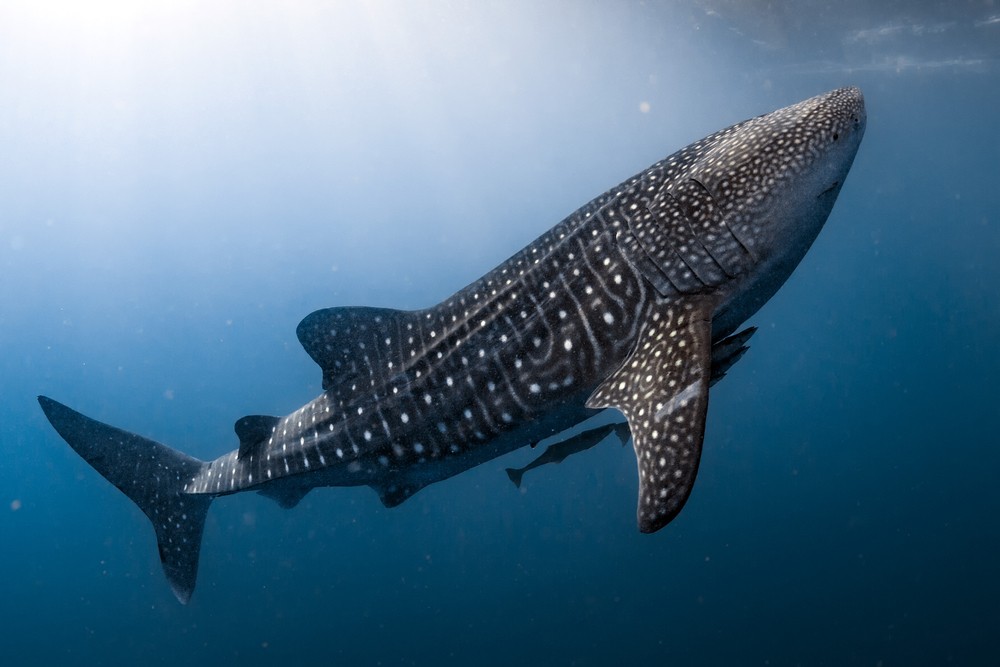Popular Reads
Top Results
Can't find what you're looking for?
View all search resultsPopular Reads
Top Results
Can't find what you're looking for?
View all search resultsBeached whale shark dies on Sukabumi coast
Residents found it and had hoped it could be saved.
Change text size
Gift Premium Articles
to Anyone
A
whale shark was found dead on Tuesday by locals and fishermen near the dock of a fishing port in Palabuhanratu, Sukabumi regency, West Java.
“I used to run into these [sharks] in the sea, and they had never disrupted our work. However, this time, we found one of them stranded on the dock,” an unnamed fisherman, who claimed to have discovered the beached shark first, said on Tuesday as quoted by Antara.
The stranded shark, known for its distinct white spots and stripes, weighed around 300 kilograms and was around 2 meters-long.
Residents immediately reported the stranded shark to the Sukabumi Water Police upon its discovery, so the shark could be returned to the sea. However, the shark was already dead upon discovery.
Water police officer Second Adj. Insp. Sutiadji said the force had dispatched their personnel to check out the scene.
“We have yet to move the stranded shark because we are still coordinating with the relevant authorities [from the Maritime Affairs and Fisheries Ministry], as the species is protected under a Maritime Affairs and Fisheries Ministry decree,” he said.
The International Union for Conservation of Nature (IUCN) has included the whale shark, the largest living fish, on its red list, calling it “endangered”. The species’ population is believed to have decreased by more than 50 percent over the last 75 years. (kuk)










